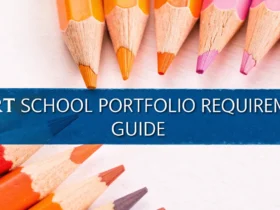Is an MBA worth it? The answer often hinges on your ability to craft a compelling narrative. Business school essays are your chance to shine, to show admissions committees not just what you’ve done, but why it matters. Many experienced MBA applicants face this daunting task, and the pressure to stand out can feel immense.
This guide is designed to help you navigate the MBA application process, specifically focusing on how to write essays that resonate with admissions committees. We’ll explore key strategies, from understanding the purpose of each essay to crafting a cohesive and compelling story. Think of this as your playbook for MBA application success.
Decoding the MBA Application Essay
MBA application essays are not just about showcasing your accomplishments; they’re about revealing your potential. Admissions committees want to understand who you are, what drives you, and how an MBA will help you achieve your goals. These essays provide a window into your personality, your leadership qualities, and your ability to contribute to the business school community.
The typical MBA application includes several essays, each designed to explore different aspects of your profile. These essays often address the following themes:
- Career Goals: What are your short-term and long-term career aspirations, and how will an MBA help you achieve them?
- Leadership Experience: Describe a time when you demonstrated leadership skills, highlighting your ability to motivate, inspire, and influence others.
- Challenges and Failures: Discuss a time when you faced a significant challenge or failure, focusing on what you learned and how you grew from the experience.
- Why This School: Explain why you’re interested in a specific MBA program, highlighting the aspects that align with your goals and values.
- Contribution to the Community: How will you contribute to the diverse and collaborative learning environment of the business school?
Before you begin writing, take the time to understand the specific essay prompts for each school you’re applying to. Analyze the questions carefully, paying attention to the nuances and underlying themes.
Crafting Your Narrative: Authenticity is Key
The most effective MBA essays are authentic and reflect your unique experiences and perspectives. Admissions committees are looking for candidates who are genuine and self-aware, not those who try to fit a preconceived mold.
Here’s how to craft a compelling narrative that showcases your authentic self:
- Reflect on Your Experiences: Take a step back and reflect on your professional and personal journey. Identify the key moments that have shaped your values, aspirations, and leadership style.
- Identify Your Core Values: What principles guide your decisions and actions? Understanding your core values will help you articulate your motivations and demonstrate your integrity.
- Connect the Dots: Show how your past experiences have prepared you for the challenges and opportunities of an MBA program and your future career goals.
- Be Vulnerable: Don’t be afraid to share your vulnerabilities and imperfections. Admissions committees appreciate honesty and self-awareness, even when discussing failures or setbacks.
- Show, Don’t Tell: Use vivid language, specific details, and compelling anecdotes to bring your story to life. Avoid generic statements and clichés.
Mastering the Art of Storytelling
Storytelling is a powerful tool for engaging readers and conveying complex ideas. When applied to MBA essays, storytelling can help you create a memorable and impactful impression.
Here are some tips for mastering the art of storytelling in your MBA essays:
- Start with a Hook: Grab the reader’s attention from the very beginning with a compelling opening line or anecdote.
- Create a Clear Structure: Organize your story with a clear beginning, middle, and end. This will help readers follow your narrative and understand your key message.
- Use Vivid Language: Paint a picture with your words, using sensory details and descriptive language to bring your story to life.
- Show Emotion: Don’t be afraid to express your emotions and vulnerabilities. This will help readers connect with you on a personal level.
- Highlight Key Lessons: Clearly articulate the lessons you learned from your experiences and how they have shaped your perspective.
Addressing Common Essay Prompts
Let’s explore some common MBA essay prompts and how to approach them effectively.
Career Goals Essay
The career goals essay is your opportunity to articulate your vision for the future and how an MBA will help you achieve it.
Here’s how to write a compelling career goals essay:
- Be Specific: Clearly define your short-term and long-term career aspirations. Avoid vague statements and generalizations.
- Connect to Your Past: Explain how your past experiences have led you to pursue your current career goals.
- Demonstrate Knowledge of the Industry: Show that you understand the challenges and opportunities in your target industry.
- Explain the Role of the MBA: Clearly articulate how an MBA will equip you with the knowledge, skills, and network you need to succeed.
- Align with the School’s Mission: Highlight the aspects of the specific MBA program that align with your goals and values.
For example, instead of saying “I want to be a consultant,” you could say “I want to leverage my background in data analytics and my passion for sustainability to become a management consultant specializing in renewable energy solutions. I envision myself advising companies on how to reduce their carbon footprint and improve their financial performance through innovative sustainable practices.”
Leadership Experience Essay
The leadership experience essay is your chance to showcase your ability to influence, inspire, and motivate others.
Here’s how to write an effective leadership essay:
- Choose a Specific Example: Select a specific situation where you demonstrated leadership skills. Avoid generic descriptions and focus on a single event.
- Describe the Situation: Provide context and explain the challenges you faced.
- Highlight Your Actions: Clearly articulate the actions you took to address the situation.
- Quantify Your Impact: Whenever possible, quantify the impact of your leadership. Use numbers and data to demonstrate the results you achieved.
- Reflect on Your Learnings: Discuss what you learned from the experience and how it has shaped your leadership style.
Instead of simply stating that you “led a team,” describe the specific challenges the team faced, the strategies you implemented to overcome them, and the tangible results you achieved. For example, “As team lead, I faced the challenge of integrating two departments with conflicting work styles. By implementing a weekly cross-functional meeting and establishing clear communication protocols, I fostered a collaborative environment that resulted in a 15% increase in project completion rates.”
Challenges and Failures Essay
The challenges and failures essay is your opportunity to demonstrate resilience, self-awareness, and the ability to learn from your mistakes.
Here’s how to approach the challenges and failures essay:
- Choose a Meaningful Experience: Select a challenge or failure that had a significant impact on you.
- Be Honest and Vulnerable: Don’t try to minimize your role in the failure. Be honest about your mistakes and shortcomings.
- Focus on the Lessons Learned: The most important aspect of this essay is what you learned from the experience.
- Show Growth and Maturity: Demonstrate how you have grown and matured as a result of the challenge or failure.
- End on a Positive Note: Conclude by highlighting the positive impact the experience has had on your life.
Instead of avoiding the topic, embrace the opportunity to showcase your ability to learn from setbacks. For instance, “Initially, I took the project’s failure personally, blaming external factors. However, through self-reflection and feedback from colleagues, I realized I had neglected to establish clear expectations and provide adequate support. This experience taught me the importance of proactive communication and mentorship, which I now prioritize in my leadership approach.”
Why This School Essay
The “Why This School” essay is your opportunity to demonstrate that you have thoroughly researched the specific MBA program and understand how it aligns with your goals.
Here’s how to write a compelling “Why This School” essay:
- Do Your Research: Thoroughly research the MBA program, including its curriculum, faculty, culture, and resources.
- Be Specific: Mention specific courses, professors, clubs, or initiatives that resonate with you.
- Connect to Your Goals: Explain how these specific aspects of the program will help you achieve your career goals.
- Show Fit: Demonstrate how your skills, experiences, and values align with the school’s culture and mission.
- Visit the Campus (If Possible): If possible, visit the campus and attend information sessions. This will help you gain a deeper understanding of the program and demonstrate your interest.
Avoid generic statements about the school’s reputation or rankings. Focus on the specific aspects that make it the right fit for you. For example, “I am particularly drawn to Professor X’s research on sustainable supply chain management, which aligns perfectly with my career goals. I also admire the school’s commitment to social impact, as demonstrated by the Y initiative. I believe my experience in Z would allow me to meaningfully contribute to this important work.”
Contribution to the Community Essay
The “Contribution to the Community” essay is your chance to show how you will enrich the learning environment and contribute to the diverse and collaborative community of the business school.
Here’s how to approach this essay:
- Highlight Your Unique Skills and Experiences: Identify the unique skills, experiences, or perspectives you bring to the table.
- Demonstrate Your Passion: Show that you are passionate about contributing to the community.
- Be Specific: Provide specific examples of how you will get involved in campus life.
- Connect to the School’s Values: Align your contributions with the school’s values and mission.
- Show Enthusiasm: Express your enthusiasm for joining the community and collaborating with your classmates.
Think beyond your professional accomplishments and consider your personal interests, hobbies, or volunteer experiences. For example, “As a certified yoga instructor, I plan to lead weekly mindfulness sessions for my classmates to help manage stress and promote well-being. I also hope to leverage my experience in cross-cultural communication to facilitate dialogue and build bridges among students from diverse backgrounds.”
The Importance of E-E-A-T in Your Essays
Remember E-E-A-T – Experience, Expertise, Authoritativeness, and Trustworthiness. While you’re not explicitly writing a resume, these qualities should subtly shine through your essays.
- Experience: Use your stories to showcase the depth and breadth of your experiences.
- Expertise: Highlight your knowledge and skills in a way that demonstrates your expertise.
- Authoritativeness: Reference reputable sources or demonstrate your understanding of industry trends to enhance your credibility.
- Trustworthiness: Be honest, transparent, and ethical in your writing.
For example, in your career goals essay, you might mention a certification you earned or a project where you successfully applied a specific methodology. In your leadership essay, you can reference industry best practices that guided your approach.
Avoiding Common Pitfalls
While crafting your MBA application essays, be aware of some common pitfalls that can weaken your application.
- Clichés: Avoid overused phrases and generic statements.
- Arrogance: Demonstrate confidence without being arrogant or boastful.
- Negativity: Focus on the positive aspects of your experiences and avoid dwelling on negativity.
- Lack of Specificity: Provide specific details and examples to support your claims.
- Poor Grammar and Spelling: Proofread your essays carefully to ensure they are free of errors.
The Power of a Polished Presentation
Once you’ve written your essays, it’s essential to polish them to perfection.
- Proofread Carefully: Proofread your essays multiple times to catch any grammar, spelling, or punctuation errors.
- Seek Feedback: Ask friends, family members, or mentors to review your essays and provide feedback.
- Adhere to Word Limits: Stay within the specified word limits for each essay.
- Use a Professional Tone: Maintain a professional and respectful tone throughout your essays.
- Format Consistently: Use a consistent font, font size, and spacing throughout your application.
Getting Started: A Step-by-Step Approach
Writing MBA application essays can feel overwhelming, but breaking the process down into smaller steps can make it more manageable.
- Brainstorming: Spend time brainstorming your experiences, values, and goals.
- Outlining: Create a detailed outline for each essay.
- Drafting: Write a first draft of each essay.
- Revising: Revise your essays based on feedback and self-reflection.
- Polishing: Proofread and format your essays to perfection.
Is This Program Right for You?
MBA programs come in many shapes and sizes. Some focus on finance, others on entrepreneurship, and still others on social impact. It’s key to show you understand the specific emphasis of the schools you target.
Show you’ve considered these questions:
- What is the core strength of this program?
- What is this program known for in the business world?
- What resources are available for students in my field?
The Last Word: Finding Your Competitive Edge
The MBA application process is competitive, but by crafting authentic, compelling essays that showcase your unique experiences and potential, you can significantly increase your chances of success. Remember to start early, be authentic, and seek feedback. Don’t just tell them, show them why they need you.
By understanding the purpose of each essay, mastering the art of storytelling, and avoiding common pitfalls, you can create a winning application that sets you apart from the competition. Now, go tell your story.















Leave a Reply
View Comments